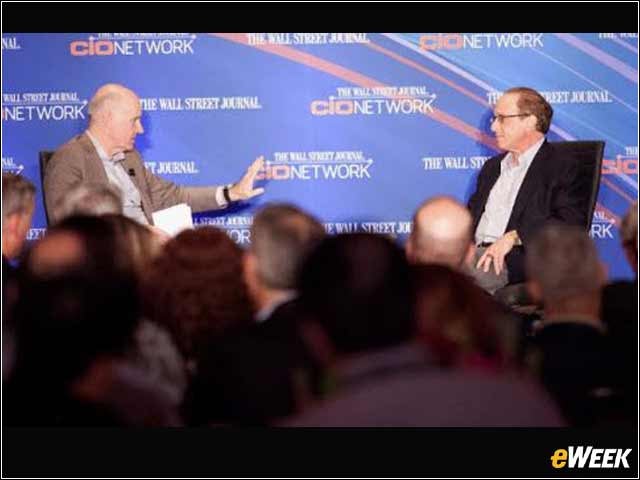eWEEK content and product recommendations are editorially independent. We may make money when you click on links to our partners. Learn More.
2CIOs Need to Start Emulating CFOs
CIOs need to start thinking more like CFOs, or else they will slowly forfeit their power to other colleagues. This year, CIOs will be required to better convey their value in pure financial terms because they are competing with a multitude of shadow IT services. We’re talking about standard cloud services such as Google Docs, Salesforce, Workday, Dropbox and others, but also about lesser-known open-source and specialized cloud services such as Tucows, FileHippo and others.
3CIOs Are Rapidly Becoming IT Brokers
CIOs will not permit do-it-yourself IT simply for its own sake or because it’s easier, ostensibly more efficient and unshackled to corporate red tape. New-gen CIOs are rapidly becoming technology brokers. The fallback strategy now in IT is to buy a tried-and-tested solution; even among midrange and smaller enterprises, the idea of building a custom solution is becoming more and more a liability.
4Mobile Users Should Be Target No. 1
Steve Jobs, never himself a CIO but perhaps one of the best big-picture thinkers of our time, was right: IT is all about the user interface and how to make it work effectively and efficiently for each consumer—and the enterprise. Look at all the attention on mobile devices and the pivot to “personal clouds.” CIOs must cater to those consuming their services, or else they will lose to easy and free-to-obtain external services.
5CIOs Need to Be Marketers for IT Services Within Their Own Enterprises
CIOs also must become more advanced marketers within their own realms. Some may go so far as to hire internal marketers to keep end-user market share within the company. After all, IT services are charged back to various divisions and departments, and any “profit” from well-run service departments can be a huge feather in the CIO’s cap.
6Budgets Continue on the Way Up
While IT budgets are slowly moving higher, investment in new services also is rising. IT budget growth levels are returning to pre-recession levels, with 43 percent of CIOs operating with bigger budgets in 2013. Analysts have projected that half of CIOs will have larger budgets in 2014; a spot poll at the WSJ event was right in line, reporting that 51 percent of attendees believe 2014 will be better budgetwise at their organizations than 2013.
7Recruiting Wars for the Best Talent Is as Nasty as Ever
The war for recruiting IT development and administrative talent is getting even nastier, thanks to the growth of many successful new-gen IT companies. Despite the move toward 21st-century talent, the classic technology skills of business analysis, enterprise/technical architecture and project management remain the most in-demand overall.
8Mobile Development Skills Remain a Hot Item
9Security Is Still a Top 2 Priority
10CIOs Seek New Solutions for Shadow IT
Usage by employees of social networks and the general consumerization of IT are as problematic as security. CIOs remain wary of shadow IT and BYOD trends, believing that the advantages they bring are outweighed by the disadvantages. Nonetheless, with new-gen software coming to the fore—such as Cloud Cruiser and others—in this area, CIOs are increasingly looking for new management solutions.
11Big Data Is the Next Big Challenge
Big data is officially a big deal. Half of all CIOs are encouraging big data development, and about the same number expect to invest more in big data-related solutions in 2014.










